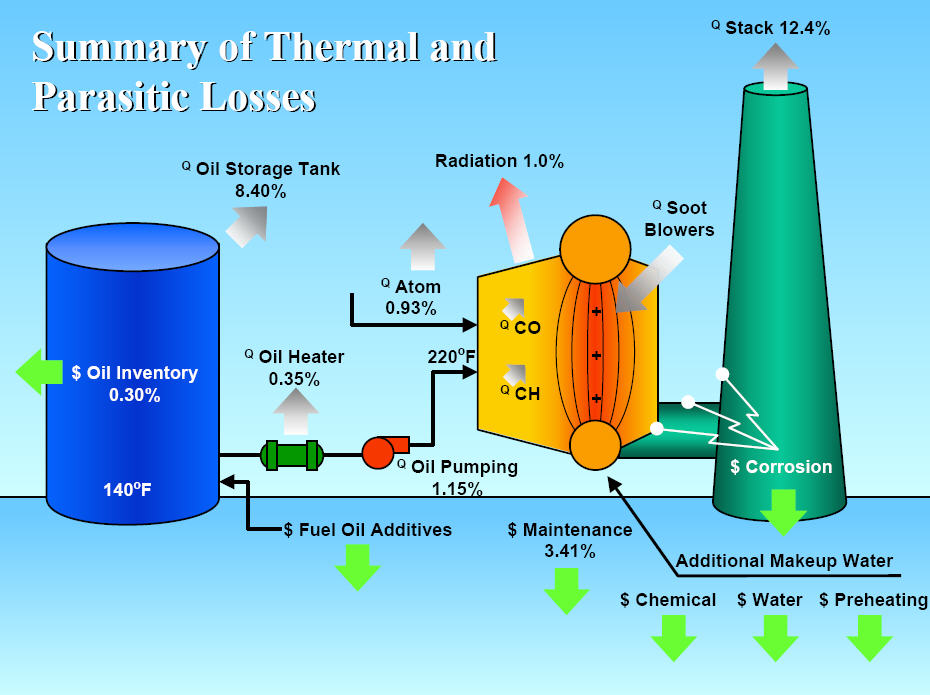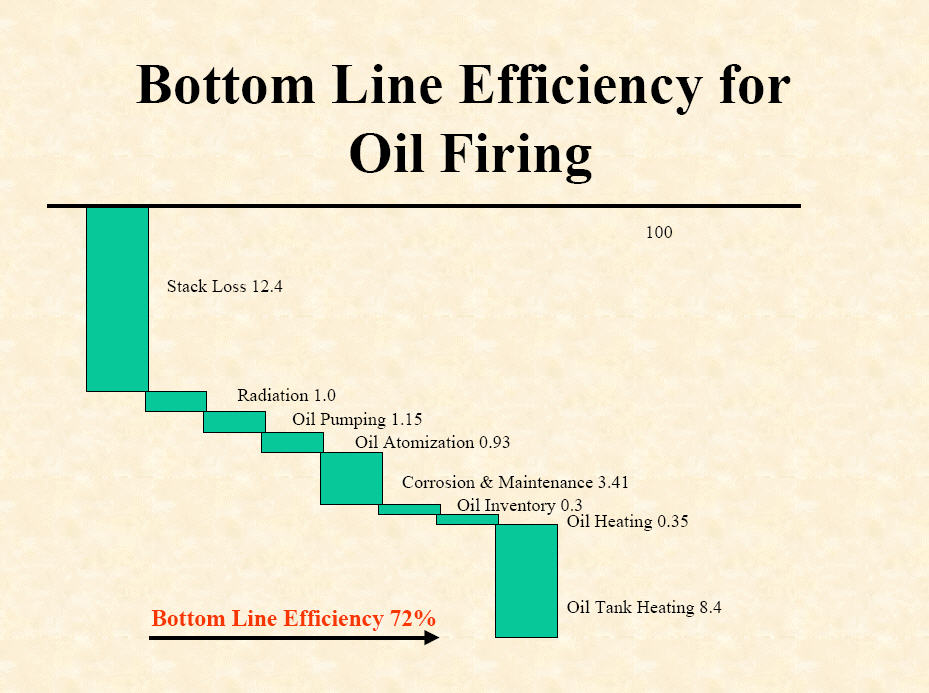Why Natural Gas?
How to compare Natural Gas and Fuel Oil Boilers
Overview
Many large commercial and industrial boilers are equipped with both natural gas and fuel oil burners. They can relatively easily be switched between fuels. Owners of boilers dedicated to one fuel may be thinking about a fuel switch to take advantage of changing fuel prices. So how do you decide when to fire which fuel? A complete comparison requires a careful analysis of at least four major factors: TOTAL fuel cost, emissions, operation and maintenance, and boiler capacity. Boiler and burner design must also be considered in retrofit applications.
TOTAL Fuel Cost: the cost of fuel is not just the price per unit of fuel, but also the cost of running the auxiliary equipment required to burn that fuel. Natural gas requires only combustion air fan(s). Fuel oil requires pumps, combustion air fans, atomizers, soot blowers, and perhaps tank and line heaters depending on the oil grade and season.
Emissions: burning fuel oil results in a substantial increase of carbon (CO2), particulates and sulfur (SO2) as compared to natural gas combustion.
Operation and Maintenance: in addition to emissions increases, the by-products that foul the inside of the boiler (soot) are also much higher with fuel oil than with natural gas. Because there are more moving parts, pumps, and other components with burning oil, the associated equipment maintenance is also higher.
Boiler Capacity: fuel oil as a liquid has a higher energy density than natural gas; it also burns with more luminosity – which can be a major factor in water tube boiler capacity. Therefore, depending on boiler and burner design, one fuel may have a capacity advantage over the other in a specific boiler.

Source: Dr. Herb Eckerlin, North Carolina State University, 2002 PowerPoint

Source: Dr. Herb Eckerlin, North Carolina State University, 2002 PowerPoint
Other Advantages of using Natural Gas:
- No on-site storage of fuel required; no inventory issues
- Pay for fuel after/as it’s used, not before
- Potentially less labor costs with reduced boiler operator requirements in some application
Basic Fuel Cost Comparison Factors
The BTU content of 1 gallon of fuel oil varies with grade and quality; the heavier the grade (higher number) the higher the BTU content. See Fuel Oil for details. Heavier grade fuel oil is also less expensive. For this example, let’s assume that the comparison is with #2 Fuel Oil at about 140,000 BTUs per Gallon and Natural Gas at about 1,000,000 BTUs per MCF
(1 MCF is about equal to 1 DekaTherm)
1,000,000 BTUs (gas) / 140,000 BTUs (oil) = 7.14 Gallons per Million BTUs.
The simple formula is 7.14 x $/Gallon = $/million BTUs
Therefore, if Fuel Oil is $3.00 per gallon, 1 million BTUs cost 7.14 x $3.00 = $21.42 per million BTUs
1 MCF of Natural Gas is about 1 million BTUs; if gas is about $10.00 per MCF, then fuel oil would be twice the cost of natural gas, in this example – before considering the other losses and issues explained above.
NOTE: #6 Fuel Oil has more BTUs per gallon and costs less than #2 Fuel Oil.
If #6 Fuel Oil has 155,000 BTUs/Gallon and costs $2.00 per gallon:
1,000,000 / 155,000 = 6.4 gallons x $2.00 = $12.90 per million BTUs
Cost and Savings Calculator
Union Gas Company has created a calculator tool that allows users to input their variables and calculate the operating cost difference between natural gas and fuel oil. For a link to that calculator, click below:
Union Gas Boiler Fuel Cost Calculator
Natural Gas Information
Additional Information
Download the complete PowerPoint from Dr Eckerlin in PDF Format
Download a Gas Technology Article based on Dr Eckerlin’s work





